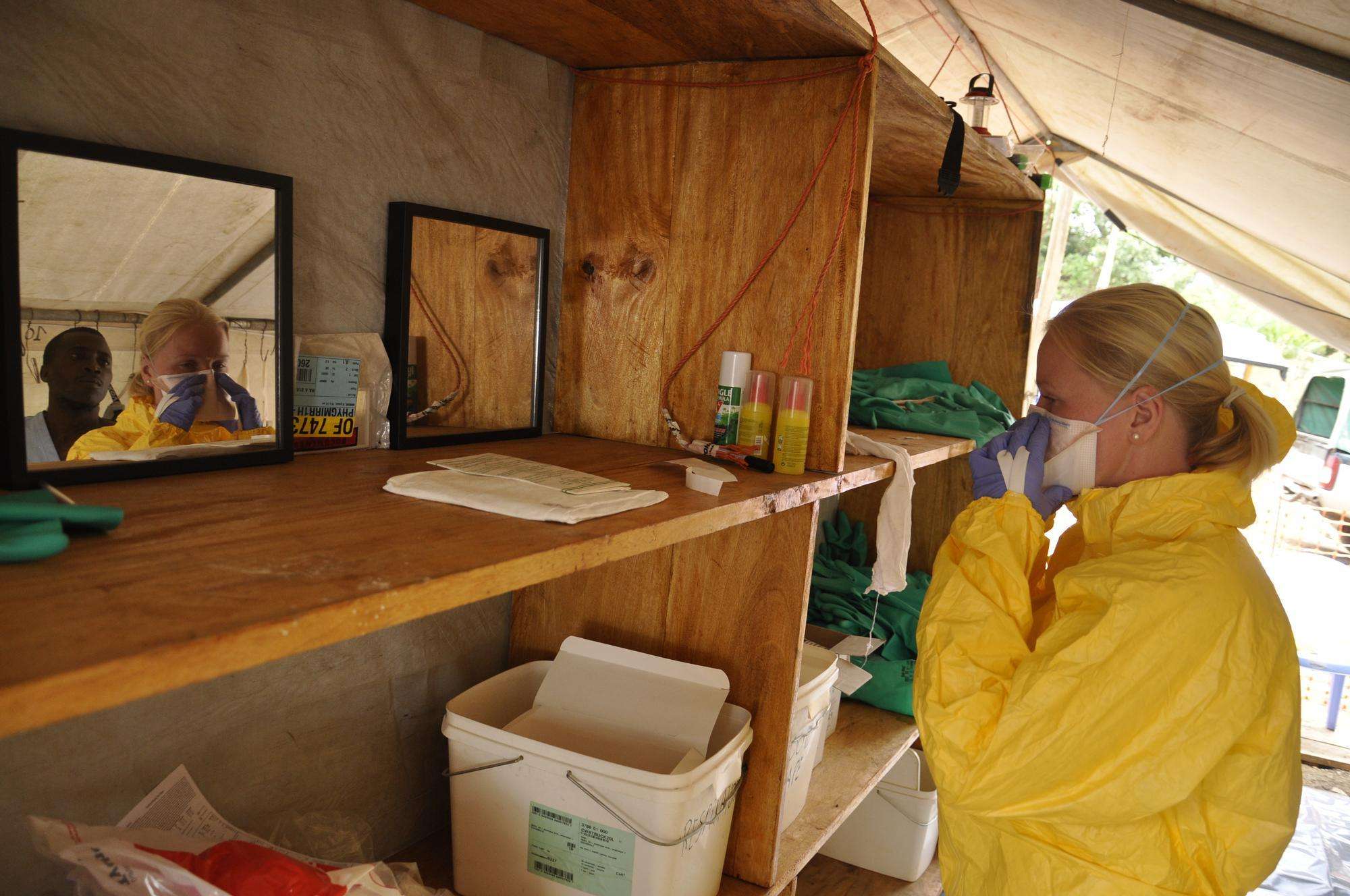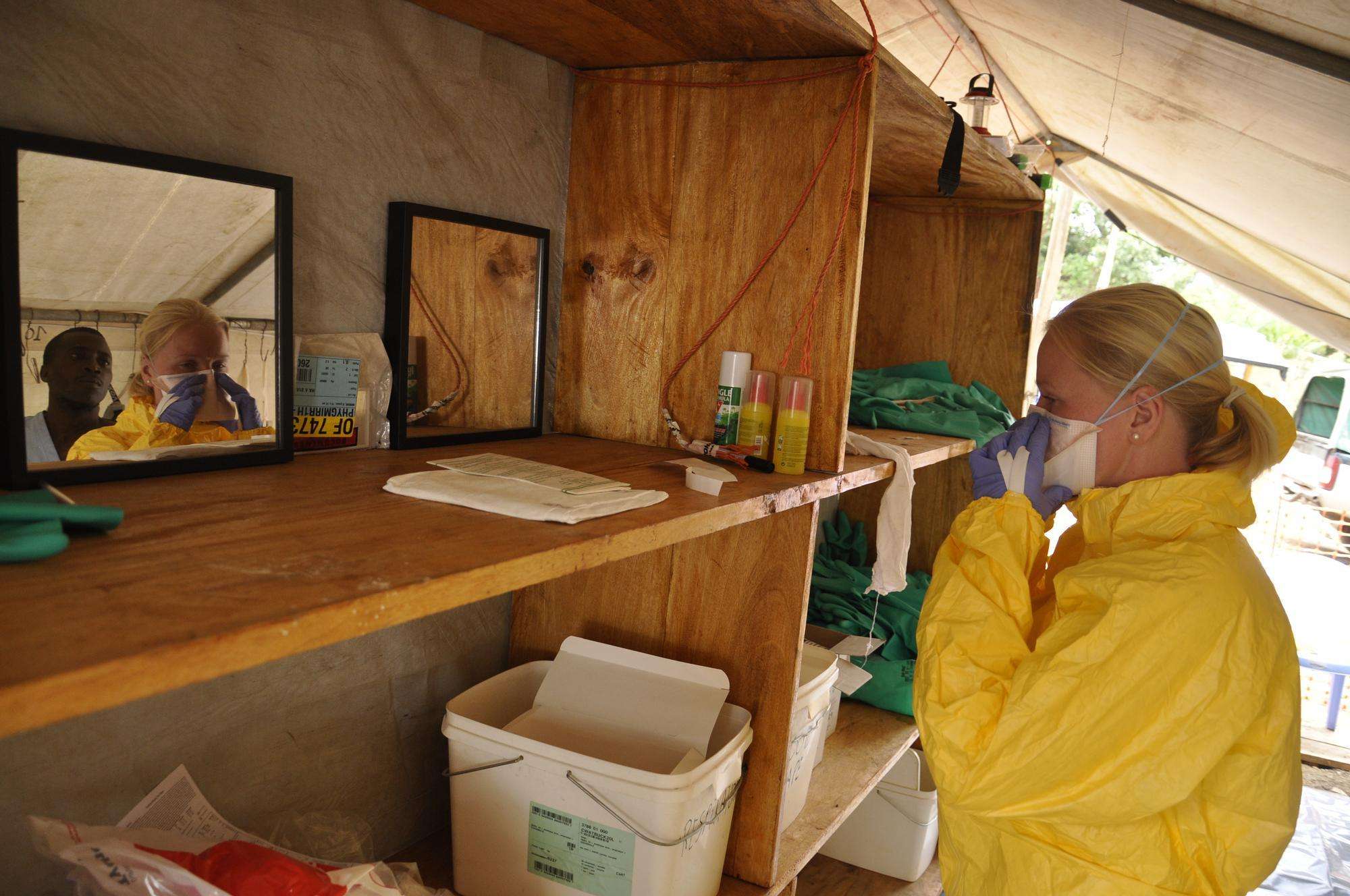Doctors Without Borders/Médecins Sans Frontières (MSF) continues to reinforce its emergency intervention in response to an outbreak of Ebola hemorrhagic fever in Guinea, where authorities have reported 134 suspected cases and 84 deaths. MSF now has 52 international staff working alongside Guinean MSF staff and in cooperation with Guinea’s Ministry of Health. They are active in Conakry, the capital, as well as in the provincial towns of Guekedou and Macenta in the east of the country. At present, MSF is caring for 19 patients in isolation units set up in these locations.
MSF’s teams include doctors, nurses, epidemiologists, water and sanitation experts, health promoters, and psychologists. “Our efforts are aimed at containing the outbreak, which is accomplished by detection of the sick and isolating them from the rest of the population,” says Anja Wolz, emergency coordinator in Conakry. “Although there is no cure for this disease, we can reduce its very high mortality by addressing the symptoms. This includes administering a drip to patients who have become dehydrated from diarrhea and by confirming that they do not have a different disease, such as malaria or a bacterial infection like typhoid.”
While the fatality rate of the Zaire strain of the Ebola virus, which is what has been detected in Guinea, can reach up to 90 percent, according to the World Health Organization, it varies according to the evolution of every outbreak. “We’ve learned from our previous experiences that we give patients 10 to 15 percent more chance to survive with good medical support,” says Michel Van Herp, MSF epidemiologist in eastern Guinea. “But if they stay at home, the fatality rate reaches generally up to 90 percent.”
In Conakry, MSF has set up a 20-bed isolation unit inside Donka hospital and is caring for 8 patients there. Specialized training sessions on the disease, its symptoms, the necessary hygiene protocols, and the best methods of triaging patients are being conducted for staff at the hospital. Another training will soon be organized for Red Cross volunteers in order to improve the management of funerals and efforts to disinfect the houses of affected people. An MSF team is also planning to start investigating alerts of other potential cases in the city.
In Gueckedou and Macenta, MSF is caring for a total of 11 patients in isolation units. Apart from isolating and caring for sick patients, it’s important that the team promptly investigate reports of other potential cases as well. MSF teams are therefore traveling to surrounding villages and referring suspected cases to the isolation units. They also disinfect households that might have been affected and follow up with people who had contact with the sick person.
Raising awareness is extremely important and MSF outreach teams are talking to communities about how they can protect themselves from the disease and prevent it from spreading. Basic hygiene efforts such as hand washing are crucial because they significantly reduce the risk of transmission. When patients die, funerals have to be managed, too, so people do not catch the disease by touching or washing the body of a deceased Ebola patient. MSF also provides psychological support to the families of the victims and to local medical staff
There are currently two laboratories in the country—one established in Conakry by the Senegal office of the Pasteur Institute and the other established in Gueckedou by Germany’s Bernhard-Nocht Institute of Tropical Medicine—that allow for quick testing of suspected patients.
“We are mobilizing all the resources available, but the response must be scaled up in order to combat the outbreak efficiently,” says Wolz. “It is important that other actors mobilize.”
MSF is also monitoring the situation in neighboring Liberia, where two cases of Ebola have been confirmed. MSF is preparing to send medical teams and isolation materials to support Liberia’s health authorities, if they are needed.





